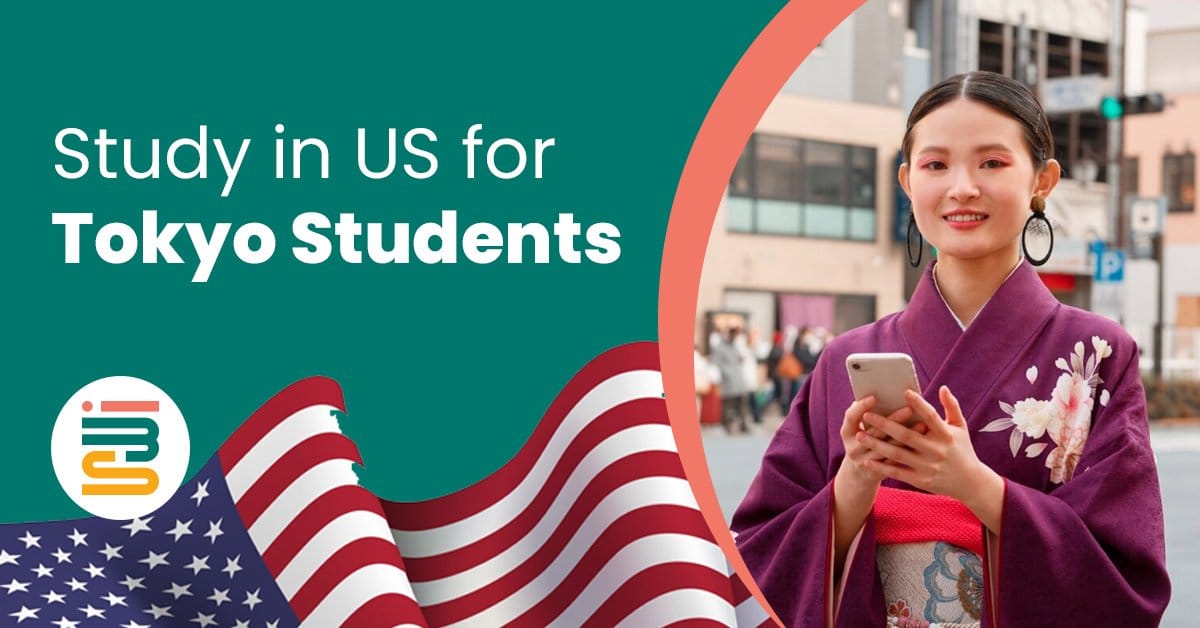I know, just the thought of applying to schools in the U.S. from Tokyo can feel like a lot. Where do you even start? What forms do you fill? Which deadlines matter? You’re not the only one asking. Every year, thousands of students from Tokyo begin this same journey. In fact, over 12,000 Japanese students studied in the U.S. in 2023, according to Open Doors Report by IIE.
Maybe you’re wondering: Which schools should I choose? Can I afford the tuition? What about scholarships? What documents do I need? These are real questions and it’s okay to ask them.
We’ll talk about that here. From selecting affordable schools to understanding application steps, finding scholarships, sorting out your visa, meeting key deadlines, and settling in. This guide is built just for Tokyo students looking to study in the US.
No jargon. No stress. Just simple answers to help you move forward.
So, whether you’re just starting or almost ready, this article walks you through everything you need to know about Study in the US for Tokyo Students: Admission Requirements and Deadlines.
Why Tokyo Students Choose to Study in America from Japan
Many Tokyo students pick the US for college because:
- Top universities: Places like the University of California or Boston University rank among the best worldwide.
- English environment: You’ll improve your listening, speaking, reading, and writing every day.
- Global career paths: An American degree can help you land jobs in Japan and abroad.
- Cultural exchange: Experience American festivals, sports games, and student clubs.
For example, Yui from Shibuya joined New York University and now interns at a tech startup, using her English skills daily.
Top US Universities Popular with Tokyo Students
For students in Tokyo aiming to study in the US, several universities stand out for their academic excellence and support for international students. Here’s a comprehensive overview of ten top U.S. universities favored by Tokyo students:
| University | Popular Courses | Global Ranking | Annual Cost (USD) | Installment Plans | Location |
|---|---|---|---|---|---|
| University of California, Los Angeles (UCLA) | Film, Engineering, Business | #15 (U.S. News) | $45,000 | Yes | Los Angeles, CA |
| University of California, Berkeley | Computer Science, Economics, Law | #22 (U.S. News) | $45,000 | Yes | Berkeley, CA |
| University of California, San Diego (UCSD) | Biology, Engineering, Psychology | #29 (U.S. News) | $51,015 | Yes | San Diego, CA |
| New York University (NYU) | Arts, Business, Global Studies | #30 (U.S. News) | $62,796 | Yes | New York, NY |
| Boston University (BU) | STEM, Arts, Communication | #41 (U.S. News) | $65,168 | Yes | Boston, MA |
| University of Michigan | Engineering, Business, Medicine | #23 (U.S. News) | $55,097 | Yes | Ann Arbor, MI |
| University of Texas at Austin | Business, Computer Science, Engineering | #30 (U.S. News) | $42,778 | Yes | Austin, TX |
| Harvard University | Law, Medicine, Business | #1 (U.S. News) | $55,587 | Yes | Cambridge, MA |
| Georgetown University | International Relations, Law, Business | #22 (U.S. News) | $56,058 | Yes | Washington, D.C. |
| University of Southern California (USC) | Film, Business, Engineering | #24 (U.S. News) | $64,726 | Yes | Los Angeles, CA |
These universities offer a range of programs and have established support systems for international students, making them attractive options for those looking to study in America from Japan.
Tips for Choosing the Right University
When selecting a university in the U.S., Tokyo students should consider several factors to ensure the best fit:
Program Availability: Ensure the university offers strong programs in your field of interest. For instance, if you’re interested in engineering, universities like the University of Michigan and UC Berkeley are renowned for their engineering programs.
Location: Consider whether you prefer an urban setting like New York City or a college town like Ann Arbor. Urban campuses offer diverse cultural experiences, while college towns may provide a more close-knit community.
Cost and Financial Aid: Tuition and living expenses vary widely. Research the total cost of attendance and explore available financial aid options. For example, Boston University offers installment payment plans to help manage expenses.
Campus Culture: Each university has its unique culture. Some are known for rigorous academics, others for vibrant social scenes. Reading student blogs or attending virtual tours can provide insight into campus life.
Support for International Students: Look for universities with dedicated international student offices that offer services like visa assistance, orientation programs, and cultural events.
Admission Requirements for Tokyo Students
To study in the US for Tokyo students, the following documents and scores are typically required:
High School Transcripts: Official records translated into English.
English Proficiency Tests:
TOEFL iBT: Score between 80–100.
IELTS: Score between 6.5–7.5.
Duolingo English Test: Some universities accept scores of 90 or above.
Personal Essay: A 500–650 word essay detailing your goals and reasons for choosing the university.
Letters of Recommendation: Typically two letters from teachers or counselors.
Application Fee: Ranges from $50–$90 per application.
Read More: Want to Study in the UK from South Korea? Start Here
Application Process (Step-by-Step)
Here’s a simplified guide on how to apply to US colleges from Tokyo:
Research Schools: Identify 6–8 universities that align with your interests and goals.
Prepare Documents: Gather transcripts, test scores, essays, and recommendation letters.
Take English Tests: Schedule TOEFL or IELTS exams at least three months before application deadlines.
Complete Applications: Use the Common Application or apply directly through university websites.
Submit Applications: Ensure all materials are submitted before deadlines.
Await Decisions: Universities typically respond between December and April.
Accept Offer and Pay Deposit: Once accepted, confirm your enrollment by paying a deposit (usually $300–$500).
Important Deadlines to Remember
Early Action & Early Decision: Applications due between October and November 1.
Regular Decision: Applications due between December 1 and January 15.
Financial Aid (FAFSA): Opens October 1 (primarily for U.S. citizens and permanent residents).
CSS Profile: Required by some universities between November and January.
University Scholarship Deadlines: Typically between November and February.
Visa Application: Begin the process as early as March or April for a fall start.
Read More: Singapore to UK Study Life: Steps to Secure Admission
How Much Does It Really Cost to Study in the US for Tokyo Students?
Study in the US for Tokyo students is exciting. It’s a big move. But let’s be real, money matters. You don’t want to get surprised when bills start rolling in. That’s why knowing the full cost of studying in the US is super important.
If you’re asking, “How much do I really need?”, this breakdown is for you.
Whether you’re just starting your plan to study in America from Japan, or already searching for US scholarships for Japanese students, this will help you know what to expect.
Complete Cost Breakdown for Tokyo Students Studying in the US
| Expense Type | Estimated Cost |
|---|---|
| Tuition (Public, in-state) | $10,000 – $20,000 per year |
| Tuition (Public, out-of-state) | $25,000 – $35,000 per year |
| Tuition (Private college) | $30,000 – $60,000 per year |
| Housing (rent/month) | $700 – $1,200 |
| Food (monthly groceries & eating out) | $200 – $400 |
| Transport (bus, train, etc.) | $50 – $100 per month |
| Books & Supplies | $500 per year |
| Health Insurance | $1,000 – $2,000 per year |
| School Activity Fees | $100 – $500 per year |
| Internet, phone & misc. | $50 – $100 per month |
So, let’s say you’re going to a state university as an out-of-state student. That means you’re not from that state. Add in food, rent, and everything else, and the total can be $40,000 to $50,000 a year.
Going to a private college? That could go up to $70,000 per year.
Here’s how it adds up:
Rent: $1,000 × 12 months = $12,000
Tuition: Around $30,000 – $50,000
Food & transport: Around $4,000 – $6,000
Insurance + fees + books: Around $2,000 – $3,000
Total: Around $45,000 to $70,000 yearly depending on your choices.
Looking for the Cheapest Way for Tokyo Students to Study in the US?
We get it, not everyone has $50k lying around. The cheapest way for Tokyo students to study in the US is by combining the right options:
Choose public universities (in less expensive states)
Apply early for US scholarships for Japanese students
Use student housing or shared apartments
Cook more, eat out less
Buy used books online
Use student discounts for transport and events
Also, work-study jobs on campus can help reduce your cost of living. You’re allowed to work up to 20 hours a week during school.
Read More: Mumbai to the UK: A Complete Study Abroad Starter Guide
Life in the US: What to Expect as a Tokyo Student
Cultural Differences
- Classes often involve group projects and class participation.
- Students call teachers by first name.
Homesickness
- Missing family, food, and friends is normal. Stay in touch via video calls.
Food and Weather
- Try local dishes like burgers and pizza, but cook Japanese meals in your dorm kitchen.
- Prepare for varying climate, from snowy winters in Boston to mild California winters.
Student Support Groups
- Join Japanese student associations or international clubs.
- Many schools have mentorship programs pairing new international students with older ones.
Tips to Succeed as an International Student
To thrive in the US, try these:
- Stay Organized: Use a planner for assignments and test dates.
- Make Friends: Attend orientation events, join clubs, and talk to classmates.
- Balance School & Fun: Set study hours but enjoy your free time too.
- Ask for Help: Tutors, counseling, and academic advisors are there for you.
Final Checklist Before Leaving Tokyo
Make sure you have:
- Passport and F-1 Visa stamped in your passport
- I-20 form and acceptance letter
- Flight tickets and arrival plans
- Housing arranged or information on dorm check-in
- Emergency contacts (family, school office, local Japanese consulate)
- Enough US dollars or a travel card ready
Pack light, but don’t forget essentials like adapters, important documents, and a few favorite items from home.
FAQs
Q: Can I work while studying in the US?
Yes, on-campus jobs up to 20 hours/week during term and full-time in breaks.
Q: What if my English is not good enough?
Consider a pre-sessional English course or pathway program before your degree.
Q: Can I apply to more than one school?
Absolutely! Most students apply to 5–10 colleges to keep options open.
Q: What happens if I miss a deadline?
You may have to wait for the next intake or apply for spring admission, which is less common.
Conclusion
Choosing to Study in the US for Tokyo students is an exciting step toward a world-class education and a bright future. You’ve learned why Tokyo students pick the US, which top schools they love, how to apply to US colleges from Tokyo, key admission requirements, visa steps for the F-1 Visa, scholarship options, and what daily life looks like. Armed with deadlines, costs in dollars, and practical tips, you’re ready to take the next step.
Remember, planning early gathering transcripts, preparing your personal essay, and booking your TOEFL or IELTS makes all the difference. If you ever feel lost, IBS Consulting is here to guide you through each stage: from shortlisting colleges to finalizing your F-1 visa.
Your dream to Study in the US for Tokyo students is closer than you think. Contact IBS Consulting today for a free consultation and expert support. Your American adventure begins now.



